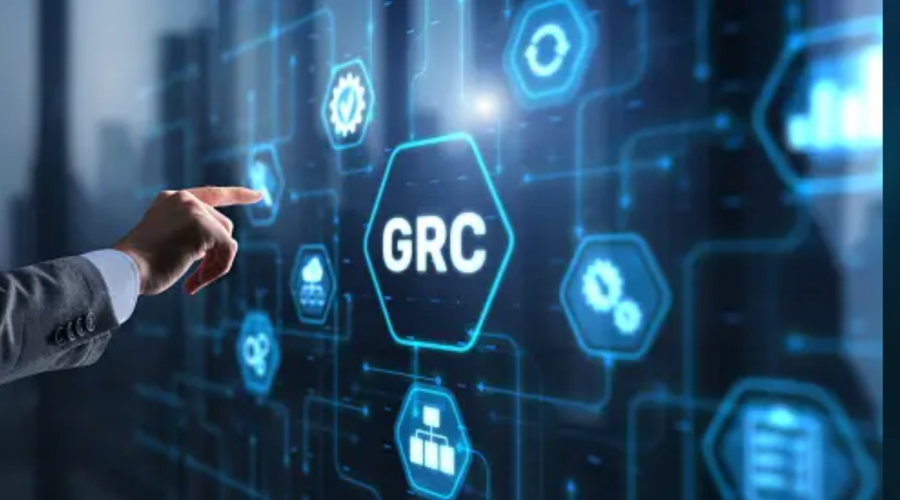GRC Meets Pentesting: The Dream Team for Compliance
Governance, Risk, and Compliance (GRC) plays a pivotal role in ensuring that organizations adhere to regulatory requirements and manage risks effectively. When combined with penetration testing (pentesting), GRC can significantly enhance an organization’s security posture. This article, “GRC Meets Pentesting: The Dream Team for Compliance,” explores how integrating GRC and pentesting can create a robust framework for achieving and maintaining compliance.
Understanding GRC and Pentesting
Governance, Risk, and Compliance (GRC)
GRC is a comprehensive strategy for managing an organization’s overall governance, risk management, and compliance with industry regulations and internal policies. GRC frameworks help organizations align their IT and security practices with business objectives, identify and mitigate risks, and ensure compliance with relevant laws and standards.
Pentesting
Pentesting, or penetration testing, involves simulating cyberattacks on an organization’s systems, networks, and applications to identify vulnerabilities that could be exploited by attackers. Pentesting provides a realistic assessment of an organization’s security defenses and helps in mitigating potential threats before they can cause harm.
Why Integrate GRC and Pentesting?
Comprehensive Risk Management
By integrating GRC and pentesting, organizations can create a more comprehensive risk management strategy. GRC frameworks help identify and assess risks, while pentesting provides practical insights into the effectiveness of existing security measures. Together, they enable organizations to proactively address vulnerabilities and reduce overall risk.
Enhanced Compliance
Regulatory standards often require both governance and technical assessments to ensure compliance. Combining GRC and pentesting ensures that organizations not only meet regulatory requirements but also demonstrate a proactive approach to security. This integration helps in aligning technical security measures with governance policies, leading to more robust compliance.
Improved Decision-Making
Integrating GRC and pentesting provides a holistic view of the organization’s security posture. GRC frameworks offer strategic insights into risk and compliance, while pentesting delivers tactical, hands-on information about vulnerabilities. This combined perspective enhances decision-making, enabling organizations to prioritize security efforts based on both strategic and tactical considerations.
Continuous Improvement
GRC and pentesting together foster a culture of continuous improvement. Regular pentesting helps identify emerging threats and vulnerabilities, while GRC frameworks ensure that the organization adapts its governance and risk management strategies accordingly. This dynamic approach keeps the organization’s security measures up to date with evolving threats and regulatory changes.
Key Steps for Integrating GRC and Pentesting
Establish a GRC Framework
Begin by establishing a robust GRC framework that aligns with your organization’s business objectives and regulatory requirements. This framework should include policies, procedures, and controls for governance, risk management, and compliance.
Conduct Regular Risk Assessments
Use the GRC framework to conduct regular risk assessments. Identify critical assets, potential threats, and vulnerabilities. Assess the impact and likelihood of these risks to prioritize them effectively.
Implement Regular Pentesting
Incorporate regular pentesting into your security strategy. Schedule pentests to coincide with major changes in your IT environment or as part of your ongoing security assessments. Ensure that pentests cover all critical systems, networks, and applications.
Integrate Findings into GRC Processes
Integrate the findings from pentesting into your GRC processes. Use the results to update risk assessments, refine policies and procedures, and enhance compliance measures. Ensure that vulnerabilities identified during pentesting are addressed promptly and effectively.
Foster Collaboration
Foster collaboration between your GRC and pentesting teams. Encourage regular communication and information sharing to ensure that both teams are aligned in their efforts to manage risks and ensure compliance. Collaborative efforts lead to more effective identification and mitigation of security threats.
How eStreet Security Can Help
At eStreet Security, we specialize in integrating GRC and pentesting to help organizations achieve comprehensive security and compliance. Our expert team provides tailored services to meet your specific needs, ensuring that your organization remains secure and compliant.
Customized GRC Solutions
eStreet Security offers customized GRC solutions that align with your business objectives and regulatory requirements. Our experts help you establish and maintain a robust GRC framework that supports effective risk management and compliance.
Expert Pentesting Services
Our experienced pentesters conduct thorough assessments of your systems, networks, and applications to identify vulnerabilities and provide actionable recommendations. We ensure that your security measures are effective and up to date with emerging threats.
Integrated Approach
eStreet Security adopts an integrated approach, combining GRC and pentesting to provide a comprehensive view of your security posture. We help you leverage the strengths of both strategies to enhance your overall security and compliance efforts.
Integrating GRC and pentesting creates a powerful combination for achieving and maintaining compliance. By adopting a comprehensive risk management strategy that includes both governance and technical assessments, organizations can enhance their security posture, improve decision-making, and foster continuous improvement. eStreet Security is here to help you


